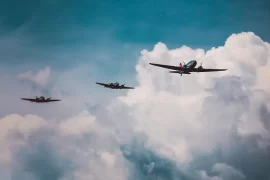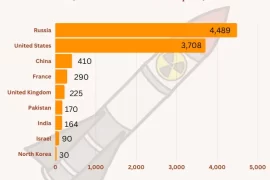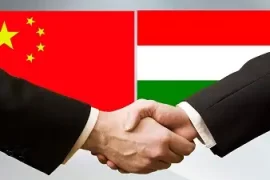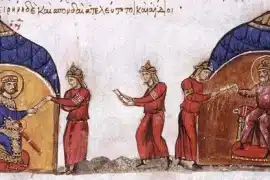Every alternative two years Bulgaria had hosted International Children fair in Sofia. In April,1989 Bulgaria hosted children fair and children artists from Bangladesh participated in the fair. I have had the privilege to join International Children fair. Bangladesh children delegation was led by an Assistant Director of Shishu Academy. Child artist from Central Kachi-Kanchar mela Shyamal was one of the artists participated in the fair. I received a letter from Director of Central Kachi-Kanchar Mela, Dada bhai, (Rokunuzzaman Khan, Feature editor of Daily Ittefaq). Until I left Bangladesh I was one of the advisors of the Central Kachi-Kanchar Mela,one of the oldest and largest children organization of Bangladesh .I was accorded farewell reception by the central Kachi-Kanchar Mela before my departure for Romania. In fact, I joined Kachi-kanchar Mela in 1958 in Kushtia.
During my stay in Romania I had been to Bulgaria twenty two times in connection with different official purposes. Of these I had participated in the discussion with Bulgarian authorities in renewing tenth bilateral trade agreement on the basis of draft agreement that we received from the Ministry of commerce of Bangladesh. I had negotiated with Bulgarian authority to offer Bangladesh free space to set up stall in Plovdiv International trade fair. Plovdiv is one of the important cites of Bulgaria near to Istanbul of Turkey. Bangladesh was granted free space to set up stall in Plovdiv International trade fair. Here too Bangladesh Trading Corporation participated consecutive three years representing different firms and trade organizations of Bangladesh. I also negotiated with Bulgarian authority to buy back all our products at the end of the fair. I felt proud when our stall was declared best in 1989 and was awarded gold medal crest. I received award from Director General of Bulgarian International trade fair authority while a Director from TCB was standing beside me. I recruited one of the students to work in our stall as interpreter to Director of TCB. TCB had succeeded to procure a good number of orders for Bangladesh products, particularly jute related products, leather hand bags. I noticed that Director from TCB preferred to share accommodation with one of Bangladeshi origin Bulgarian or relatively cheap hotel. As a result, TCB representative did not succeed to exchange views with other competitive representatives in trade fair nor he visited different stalls to exchange views about Bangladesh products.
Having finalized trade agreement a two member delegation from Bangladesh arrived in Sofia and I joined as third member of the delegation from Romania. The leader of Bangladesh delegation was Joint secretary Abdul Jalil of the Ministry of Commerce and G.W Choudhury, Deputy Secretary of the Ministry of commerce, another member of the delegation. We stayed in Hotel Vitosha.Having signed the agreement Joint Secretary hosted dinner for Bulgarian delegation. Joint Secretary was reluctant to offer hard drink in the party. In Europe, no dinner party succeeds if no hard drink is offered. Whatever might be the policy of Bangladesh government I succeeded to convince Joint Secretary that there would be no indication in the bill that hard drink was offered in the party. Accordingly I talked to the banquet manager of the Hotel that hard drink should be shown in the bill as food items. The manager agreed and hard drink was offered. Deputy Minister Constantin Glavanakov of Bulgarian economic ministry was present in the party.
I had developed good working relationship with Kanev, Director in Education ministry of Bulgaria who was very helpful in extending scholarship or visa to our students in completing studies in Bulgaria.During summer vacation most of the students went to European countries for hunting jobs. I would like to add that our students in Bulgaria did very good results in medicine, agriculture and sculpture. At least three students had secured gold medal in medicine, including sister of freedom fighter Colonel Taher. Dinesh and Shubodh was other student of the recipient of gold medal in medicine. Occasionally, students invited me to a lunch in their hostel while I was on a visit to Sofia. Some former Bangladeshi students are having happy family life having married Bulgarian girls. Dinesh, a Bangladeshi student and former member of Kachi-Kanchar Mela, also married a Bulgarian girl and settled in Manikganj as Physician.
While we were covering Bulgaria from Romania the country was under communist rule of Todor Zhivkov ,who ruled Bulgaria 33 years. Luckily, he was neither assassinated nor was interned in jail. In 1990 Bulgarian communist party had developed reform in the party. In the process Bulgarian communist Party had changed its nomenclature to become Bulgarian Socialist Party and adopted a center-left political ideology in place of Marxism-Leninism. President Todor Zhivkov was removed from the party in 1989. This cosmetic change in Bulgaria is the reflection of Michael Gorbachev’s reform policies of Perestroika and Glasnost in Soviet Union. In October,1989 general campaign in Sofia was broadened for political reform. Peter Mladenov, who replaced Todor Zhivkov, 11 December,1989 went on TV to announce the Communist Party had abandoned power and first free general election took place in June,1990 paving the way to multi-party system. On November 15, 1990 Grand National Assembly of Bulgaria voted to change country’s name to the Republic of Bulgaria. In 1989 expulsion of Turks from Bulgaria had caused a significant drop in agricultural products in southern region of Bulgaria which is bordering with Turkey. Turkish origin Bulgarian was mostly involved in cultivation in agricultural fields. During Ottoman Empire Bulgaria was under Turkey. Bulgarian had lot of complaint against Turkish ruler. Bulgarian complained that Turkish ruler had forced to change their names given by their forefathers. Only mosque in Sofia was under lock and key.
It was only possible because of spontaneous upsurge of the people in Bulgaria which I witnessed in Sofia in October-November,1989. Erich Honecker, dictator of East Germany escaped after the fall of Berlin Wall in 1989 and took asylum in Chilean embassy in Moscow, but he was extradited to face trial in unified Germany. Proceedings against him were dropped because of Honecker’s illness and joined his family in Chile where he died in May, 1994 and Nicolai Ceausescu, another dictator of Romania during communist era was brutally killed by the army after verdict by summary military court. Only Todor Zhivkov escaped the wrath of the people.
In Bucharest, we developed friendly relations with commercial counsellor of Indian embassy Joshi. As a result, we had exchanged visits. On one occasion Joshi proposed to have joint picnic outside of Bucharest. Both families followed his destination. We arrived 30 miles off Bucharest. It was really serene atmosphere: fresh air, open sky but surrounded by big trees. Having our lunch Joshi proposed to give big surprise and asked me to walk a few furlongs. We did. To my utter surprise, we saw open air nude club. Both male and female– old and young– alike are moving freely around without any piece of cloth on the body. They did not feel shame on seeing us. In fact, it was my first experience to see open air nude club. Not only Bucharest but also important cities in Eastern Europe during communist system girls were used to sell their bodies to earn hard currency while some girls were employed as spy in iron curtain communist era.
During our stay in Romania, I had the privilege to travel to Vienna in Austria for one week with members of my family at the courtesy of the Ambassador. Mercedes car of the Ambassador was required to overhauling after three years or so. In Bucharest, there was no provision to overhauling Mercedes car.Vienna was the only place to overhauling of foreign cars.driver Viciliu drove the car. On way we stayed one night at Budapest, capital of Hungary.Capital of Hungary was divided into two parts: Buda and Pest.Buda and Pest was joined by Chain Bridge over the river Danube in 1873.It was beautiful city which now consider one of the biggest cities in European Union. In Vienna, we visited Schonbrunn Palace where Napoleon François Bonaparte, son of Emperor of France Napoleon Bonaparte, died of tuberculosis on 22 July, 1832. Emperor Napoleon Bonaparte was abdicated his power after his defeat at the hands of allied forces, but allied forces did not accept transfer of power to his son.Some of Emperor Napoleon’s Armory are preserved in the palace.Schonbrunn palace began summer palace for the Habsburgs empire in 18th century.Austro-Hungarian empire is known as Habsburgs empire which lasted from 1948 to 1914.Now it has become UNESCO’s world heritage site, apart from towering cathedral: the Stephansdom. we also visited a number of art museum including Mozart Museum. Last but not the least, we paid a visit to UN offices in Vienna at Kaisermulain strass. We also visited Constanta in Romania, lovely sea port on the Black Sea,179 miles off from Bosphorus straits.
During my second trip to Timisoara I drove to Belgrade, capital of Yugoslavia now Serbia for a day along with my family with the permission of the Ambassador. I had a tete-e-tete with Bangladesh Ambassador to Yugoslavia who was from the army. We were provided with a guide to see important places in Belgrade. While I was in Belgrade Joseph Broz Tito did not exist who expired on 4 May of 1980 and his political secretary possibly were interned or roaming around in some places after Yugoslavia was bifurcated in 1991.Therefore, I did not have the privilege to enjoy the invitation of Political secretary to President Joseph Broz Tito. I paid a visit to Mausoleum of Joseph Broz Tito where he remained buried. In Belgrade, I was invited by political counselor of Bangladesh embassy for launch.
During our stay in Romania and Bulgaria I noticed with amazement that Romanian and Bulgarian as well, by and large, have knack to learn more languages. Older generation were mostly speak Romanian and Bulgarian–Slavic branch of Indo-European language family, apart from Russian. Mid- age Romanian speak more than two languages. I noticed President Ion Iliescu , who succeeded Nicolai Ceausescu after the fall of communist system speaks both French, Italian and Russian. Incidentally, I met one young Romanian lady at national day reception of Chinese embassy in Bucharest, who specialized in Chinese language, apart from French. Her name was Carmen Michaela. She greeted me with Namaste.From Romanian lady I learnt that Bucharest University had faculty for Bengali and Hindi. I met Bengali teacher Amita Bose who was from West Bengal of India. Faculty was closed in mid 80’s but Amita Bose remained and laid to rest in Bucharest. Bulgarian equally speak Turkish and Russian.
Some how or other ,Romanian gate was open to receive flood of people from Asia who were hunting for jobs in European countries following the fall of communism.Bucharest turned out to be transit point to go to Western countries. I met a number of people from Bangladesh who were stationed in Bucharest. I was shocked when one day sweeper of Bangladesh embassy brought two Bangladeshi to the embassy . They were staying in her house at a cost of ten dollars per night. Another day I received two gentlemen who are graduate from Dacca University, went out for a job in Europe by Aeroflot of Russian plane. Aeroflot offered cheap air fare. I was shocked to note both of them almost lost their legs because they travelled bare foot in crossing ices from Bulgarian border to Italy.They were caught at the border by Bulgarian police and sent back to Bucharest. I arranged for them treatment by doctor in Bucharest. Incidentally, they recovered from fatal injuries but could not go back because there was no seat available for them in Aeroflot. However, they were having return ticket from Moscow to Dacca. I intervened with Russian embassy in Bucharest to arrange their return to Dacca. I received a phone call from Russian embassy after two days and arrangement was made that they would be allowed to fly from Moscow to Calcutta from Aeroflot.
I would like to quote from Daily Star of April o4,1992 about my article which said: to a Bangladeshi diplomat posted in Bucharest during uprising in Romania and other East European countries in December, 1989 against communist regimes, the events remain unforgettable because, after all, they form part of history. The writer witnessed to history who provides a personal account of the traumatic developments which changed Romania.
In Bucharest, my wife and myself was accorded farewell dinner by second Asian group of diplomats on the eve of my departure to Bangladesh on transfer in August,1991. I was presented with silver casket with Romanian map engraved on it and signed by ten diplomats. One of the diplomats from the embassy of the Philippine Rodolfo Dumapias, who was retired as Ambassador from Seoul is now settled in Texas, US with whom I have been marinating relations.Daughter of Dumapia: Maria is close friend of my eldest daughter Tania. Dumapias has become priest in a church . In fact, we built up friendship during our stay in Kuala Lumpur in 1980 and again met in Bucharest.
Ambassador and staff members of the embassy in Bucharest also gave farewell.Perfomances as diplomats has been aptly reflected in the book: From Balkan to Baltic by Shariar Kabir. He is reportedly said “Bangladeshi students in Bulgaria have spoken spontaneously about Ambassador and First secretary in Bangladesh embassy in Bucharest. They treated us as their sons and daughters. What I noticed in Bangladesh embassy in Romania that there were harmonious relations from Ambassador to staff members of the embassy which was rarely witnessed in other Bangladesh embassies that I witnessed. Generally, I noticed complaints by Bangladeshis in foreign lands against Bangladesh embassy but Bucharest embassy was the exception.”
Back to pavilion means to the Ministry of Foreign affairs
I was transferred to the Ministry of Foreign affairs and after one week or so my services were placed at the disposal of Bangladesh Civil Service and Foreign Affairs Academy in Shahbag for conducting course of newly recruited officers of Foreign Service. By an order Foreign Service Training Academy had been merged with Bangladesh civil Service academy by President Hussein Mohammad Ershad on a grudge against Principal Humayun Kabir in August, 1985. It had been rumored that Humayun Kabir incidentally had developed friendship with girlfriend of the President Ershad. President Ershad visited academy when he found Principal was conspicuously absent. Humayun Kabir was made officer on special duty. From 1985 to 1991 Humayun Kabir suffered. He was selected as Permanent Representative to the United Nations by Prime Minister Khaleda Zia of BNP and later Humayun Kabir served as Ambassador to the United States of America and built up good relations with US President Bill Clinton. Humayun Kabir was linguist. He used to speak English, French and Spanish fluently. He was the only Ambassador of Bangladesh who was awarded by a foreign government—- Spanish government. It would be relevant to point out that President Ershad was responsible to break many family lives and practically turned out to be a debauch. In December, 1985 President Ershad asked us to include three chairmen including their wives. One of them was Zeenat Musharaff with whom President Ershad had established relations. Mr. Musharaff was Chairman of Bangladesh Chemical industries Corporation. London Observer ran an interesting story of secret marriage with Mary by President Ershad. She was a house wife of a banker in Dacca. I used to know Mary from Islamabad days when her father Kazi Shamsul Huda was Deputy Secretary in the Ministry of Information and National affairs. Last but not the least, Ershad had made a history in marrying relatively young lady: Bidhisha, daughter of Professor Abu Bakar Siddique and divorced as well. President Ershad also did another unpalatable work by transferring External Publicity Division from the Ministry of Foreign Affairs to the Ministry of Information whimsically. External Publicity Division belongs to the Ministry of Foreign affairs in developed and developing countries. In fact, external publicity had begun working in the Ministry of Foreign affairs under exile Bangladesh government in India. Khandakar Mustaque Ahmad was the Foreign Minister.
In the academy I had to recast courses for Foreign Service cadres and selected some professors from Dacca University and requested retired foreign Secretary Nazrul Islam to take courses on diplomacy for foreign service officers. History Professor Syed Anwar Hossain and two Professors from International Relations—Dr. Imtiaz Ahmed, Professor Nurul Momen were selected to take courses on regular basis. I found that there was no course on Bengali language and literature. I invited Professor Anisuzzaman to devise course on Bengali language and literature and he did and gave lectures. I also invited Dr. Iftikhar Ahmed Choudhury, Director-General of the Ministry of Foreign Affairs and Reaz Rahman, Foreign Secretary to give lectures on foreign policy. To make them happy I proposed to increase emolument from Taka three hundred to four hundred for giving each lecture. Arabic was the only foreign language taught to Foreign Service officers. Mohammd Zafar, an official of the Foreign Ministry who was appointed as translator, was lecturer on Arabic language. On many occasions he accompanied Head of the government to the countries in the Middle East as interpreter.
I also introduced simulation programmes for Foreign Service cadre officers. During my stay in academy I gave two subjects as part of simulation programmes. First topic was the exodus of Rohingya Muslim from Myanmar and its solution and second issue was Israel-Palestine conflict and resolution of the conflict. eight students were divided into two groups to prepare reports. Mock demonstration of the work in the United Nations was conducted by Professor Nurul Momen on the basis of tape record that we received from US Information service of US embassy in Dhaka.. I invited Director-General in the Ministry, Dr.Afsarul Qader, who was looking after United Nations in the Ministry, to witness mock demonstration by BCS foreign service officers of the performances in the United Nations.
Dr.Sadat Hossain was Director-General of BCS and Foreign affairs academy. He was a very disciplined and hard taskmaster as well. Religiously, Sadat Hossain was pious man, who retired as Chairman of Public service commission. Director-General assigned officers of BCS cadres to pay visit different districts and report back to the academy during the period of hartals. On two occasions I was asked to accompany them. I visited Narayanganj and Tangail. The theory of Sadat Hossain was that these officers should be acquainted with difficult period of time in their career. When they would be posted in different districts they would be confronting such situation. District Commissioners, however, were informed of their arrival schedules. Female officers could not make the trips.
I was directed to prepare programs for officers of BCS Foreign service cadres as well as a part of familiarization of the country. I drew up four programs related to foreign policy. a visit to Cox’s Bazar to know alluvial part of Bangladesh and meet Rohingya Muslim refugees in the camps in Cox’s Bazar from Myanmar, followed by another visit to Tamabil border of Sylhet, apart from Rangpur Teesta barrage project and Tin Bigha corridor in India included in the programmes. I accompanied Foreign Service officers in all the trips. I held a dinner party for Foreign Service officers at my residence at Bailey road to demonstrate table manner. They enjoyed the party. It would not be self-praising if I say that my wife Momtaz Hossain was an excellent cook. At least on two occasions I received praise for my wife for preparation of good food. On the eve of my departure to Kuala Lumpur I held a party at my residence where Director-General external Publicity Syed Nazmuddin Hashim and his wife were present. At the end of dinner Hashim told me that you would be successful in public- relation.
A seminar on environment was organized by the academy for the benefit of foreign service cadre officers in June,1993. It was inaugurated by the Minister of Forest and environment while inaugural session was presided over by Dr.Fazlul Hasan Yusuf, Director-General of the academy. Second session of the seminar was devoted to presentation of main paper. Keynote speaker was Professor Aminul Islam of Geography department of Dacca University while Nazrul Islam, former foreign secretary presided over. I invited three other discussants to take part in the seminar. They were Professor Ainun Nishat from University of Engineering and Technology and Dr. A Atiq Rahman, Director Bangladesh center for advanced studies and Professor Kazi Zaker Hossain of Zoology department of Dacca University. Trainee foreign service officers also participated in the seminar. It was lively and educative in nature. In his key note paper Professor Islam talked about global environmental change, population growth, land degradation, desertification, effect of urbanization, loss of wetlands and opined that current problems of Carbon 2 emissions and pollution are mainly the products of the industrialized world and the extent of pollution is still on the increase in these countries, but it is likely to spread even to some other industrializing countries like China, India and Brazil. Professor Aminul Islam was holding the opinion that it should be possible to achieve stable population if we could achieve continuing economic growth, raise living standard and thereby break the chains of poverty, hunger and environmental degradation and only growth could eliminate ominous cycle of poverty and manage resources at a sustainable level.
Speaking on keynote paper Professor Ainun Nishat said that developing countries could not be held responsible for the environmental hazards created by the industrialized countries. Professor Ainun Nishat was of the opinion all environmental threats, as propagated by the west; do not pose threat to the developing countries. He pointed out if Bangladesh goes for industrialization for 200 years her contribution to global environmental degradation would be less than three percent. Therefore, the West should provide fund for environmental protection. Dr.Atiq who is also consultant for Centre for research on NIEO in Oxford University, equally blamed industrialized countries for degrading environment. Referring to his personal experience at RIO conference on Earth summit, he told the audience that all the NGO’s representing developing countries had made utmost effort to resist President H.W George Bush of the United States of America so that he could not get his plan approved. Dr. Atiq emphatically said that gene pool in one square mile of the Sundarban area has greater biodiversity than that of whole North America. So when the United States refused to sign the biodiversity clause at Rio conference,Dr.Atiq and NGO’s from other developing countries exerted pressures on the developed countries and had made a moral cause in this regard.
Apart from guest lecturers, I also took classes on table manner, etiquette and protocol and spoke on Bangladesh-India relations in particular. I also instructed officers they should offer vote of thanks quoting subject matter at the concluding of lecture by guest lecturers. I noticed three officers did not follow the instruction. I called by one by one in my office to know the problem. Three Foreign Service officers admitted that they were feeling nervous in speaking in English because they studied in Bengali medium. One of them was lecturer in accountancy in Dhaka University. Another one was a graduate from Agricultural University and third one was graduate in Biology from Dhaka University. I gave brief note as to how to say vote of thanks. Finally lecturer from Dhaka University left Foreign Service and joined in Custom service. The young man met me in the office after joining in Custom service. That trend gave me the impression of the deterioration of education system in Bangladesh.
During my stay in the academy Association of Management Development institutions in South Asia (AMDISA) whose headquarter is located at Madras in India had floated invitation to different academy inviting articles on different subjects. I had chosen subject on information technology. A few other faculty members of the academy also participated but my article was accepted by AMDISA. AMDISA had assigned Association of Management Development Institution of Bangladesh to organize third academic conference in Dhaka during February 4 to 7, 1994. I had the privilege to receive first communication from Executive Director VE Ramamoorty of AMDISA followed by another letter from Professor M. Shamsul Haque who was Director, Institute of business administration of Dhaka University and President of Association of Management development institution of Bangladesh. The third academy conference was held at Sonargaon hotel and President Abdur Rahman Biswas inaugurated. I presented my paper on new international information and communication order and it was followed by question-answer session. I was awarded with Taka 1300 for my article which was included in a book along with other articles. The book was published by Institute of business administration of Dhaka University.
By now I had been transferred to the Ministry of Foreign affairs on promotion as Director. There has been tussle between Chief of Protocol Masum Ahmed Choudhury, former Information service holder and Rafique Ahmad Khan (a Mujibnagar appointed),Director-General of Europe to join their desk. I told them to sort out with administration. Incidentally, I was given assignments to look after two political desks: West European and Eastern Europe as well. Additional Taka 250 added to my pay cheque for holding two posts simultaneously. (To be continued)
The writer is retired diplomat from Bangladesh and former President of Nova chapter of prestigious Toastmaster International club of America.







